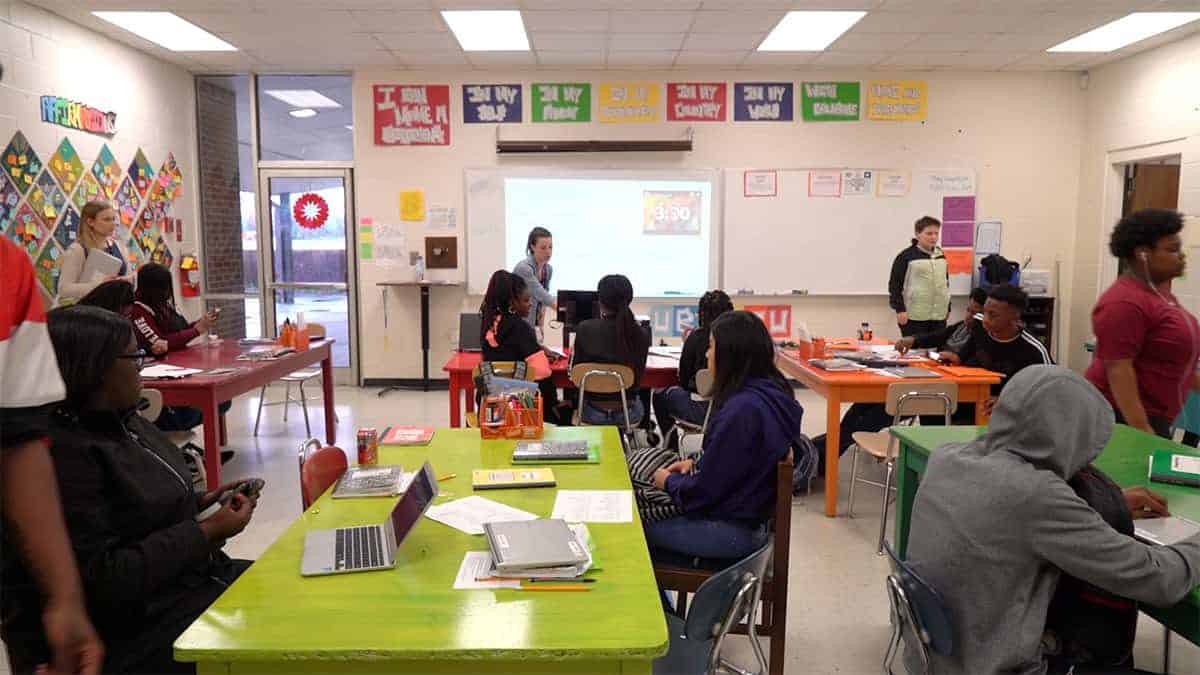
For decades, Teach For America has been working alongside countless partners to fundamentally change our education system. We know that an education system that was designed over 100 years ago cannot possibly meet the needs or potential of every child today. And the COVID-19 pandemic has been a traumatic but powerful way of making it clear just how deeply we need to reimagine education and ensure that students — especially those in low-income communities and in communities of color — are no longer left out and left behind.
When the crisis hit in March, despite the best efforts of teachers, administrators, and parents, the transition to remote learning and the socioeconomic trauma of the pandemic only exacerbated the educational inequities in our state. We knew we needed more than a temporary patch to get this right. This was a moment to reinvent the way we do things — both in our own organization and in education writ large.
It’s one thing to call for fundamental changes to our system, but it’s another to put that vision into action. We started with how we train our incoming corps members. Instead of our traditional in-person model, we completely redesigned our training program to meet the needs of the moment.
We prepared our corps with the tools and technical knowledge necessary to run a classroom online, we coached them on how to identify and manage the social and emotional needs of their students, and we brought in a variety of experts to develop and teach new techniques that would keep students across grade levels engaged and learning. As scary as it was to throw out our tried-and-true playbook, we were committed to being nimble in this time of crisis to not only ensure we meet the needs of our students, but to equip this next group of passionate and diverse leaders with the tools they need to be effective members of the educational equity movement.
And none of this would have been possible without each and every corps member who put their commitment to students and to educational equity ahead of the uncertainty and anxiety in their own lives during this crisis. As a result, Teach For America North Carolina’s corps members entered their virtual classrooms this year as some of the most prepared educators in the nation to meet this moment.
Earlier this week, we held a panel discussion to dig into the specifics of how we quickly made this shift in our training model, the success we’ve seen from it so far, and what we learned from the experience to better equip incoming corps members for years to come. We were delighted to be joined by North Carolina State Senator Deanna Ballard who has been a fierce advocate for North Carolina students and discussed the work she’s been doing to help bring equity to our education system, especially during the pandemic.
But this is about so much more than how we train teachers. Our network’s commitment to ensuring students’ success in North Carolina has always gone well beyond the classroom. Before COVID hit, TFA alumni were hard at work fighting for educational equity here in the Tar Heel State — from establishing a nonprofit that expands opportunities for students of color, to taking a new and innovative approach to how we reimagine our education system, to tackling the unique challenges rural communities face. And during the pandemic, we’ve seen our network rise to meet the new challenges COVID has presented, like delivering groceries to food insecure families, fighting for reliable internet access for all students, and providing families the day time child care and tutoring assistance they might need.
The innovation, agility, and commitment of our corps members and alumni has been extraordinary, and it has mirrored what we have seen from students, families, and educators across our state as we’ve navigated the educational realities of this pandemic. And while we work to meet the needs of our students in this moment, we must be clear that we cannot and will not go back to the status quo when the pandemic is over. Together with students, families, and teachers, we must take an honest look at what’s working and what isn’t — and make permanent systemic changes to ensure every single child growing up in North Carolina gets the education they deserve and need to succeed in life.
We now have an opportunity — and an obligation — to reimagine what comes next. We must shape a different future with our students, one that is more equitable, more just, and more fair. But it will take a coordinated and sustained approach from all North Carolinians who are invested in our children’s future to build an innovative new education system that puts equity at the heart of education. The work to affect that change in our new normal might have started this spring to solve an immediate problem, but it cannot end when this crisis is behind us.
It isn’t going to be easy — but genuine change for the better rarely is. We must continue pushing to finally knock down the barriers to educational equity and ensure that all children in our state and across the country are set up for success.





